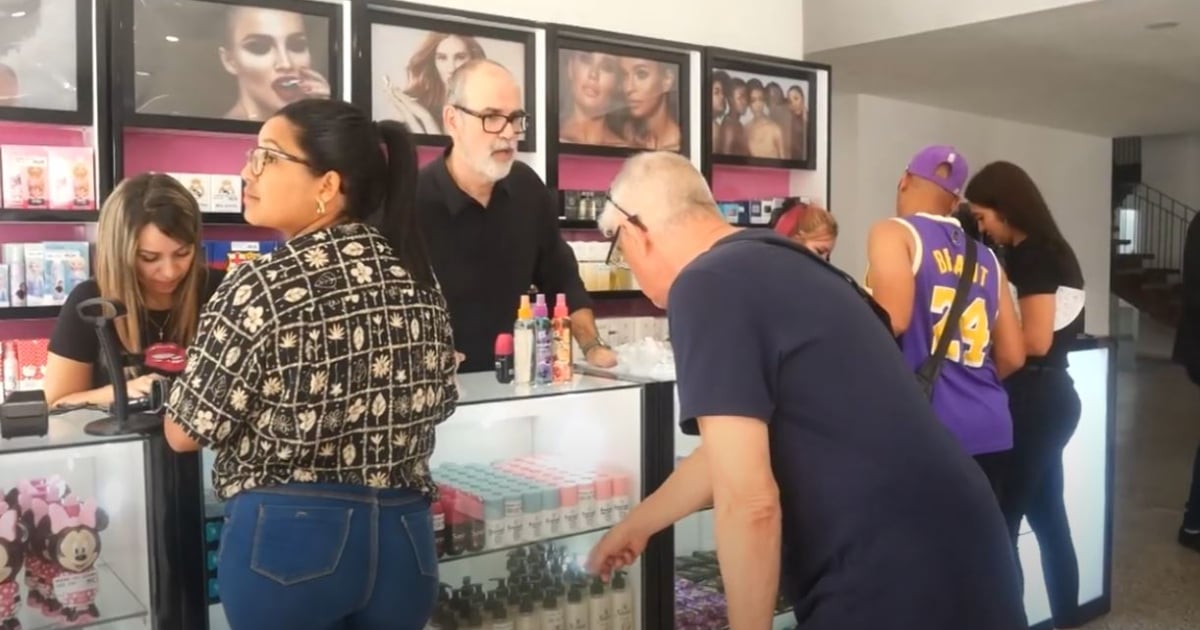In yet another attempt to attract foreign currencies, the Cuban government has unveiled a "new incentive" for the use of Classic dollar cards, offering a 4 percent discount on purchases at the newly opened MCM Camacho S.A. Toiletries and Perfumery Store, located on the San Rafael Boulevard in Havana. This announcement was made by Fincimex S.A. on their social media platforms, promoting the offer as "a romantic choice for couples" just in time for Valentine's Day on February 14th.
However, this discount is only applicable to payments made with government-authorized dollar or reloadable cards, excluding MLC cards, even though these are also funded by remittances sent from abroad. The new store, operated by the joint venture MCM Camacho S.A., occupies the space previously used by the Giralt appliance store and more recently, a recycled clothing shop.
The opening of this store underscores the regime's strategy to prioritize foreign currency trade, further limiting shopping options for those reliant on the Cuban peso or MLC. The partial dollarization question arises as the government pushes its Classic card with more propaganda, exacerbating inequality.
Intensified Promotion of Dollar Classic Cards
The Cuban government has ramped up the promotion of the Classic prepaid card, a financial product in US dollars (USD) that facilitates the purchase of goods and services across the country's state-run stores and gas stations. However, instead of offering an equitable economic solution, this measure deepens economic disparities and heightens the population's dependency on access to foreign currency, primarily benefiting the business conglomerate GAESA, which is controlled by the regime.
For 2025, the government's measures include currency acquisition as a top priority. The Classic card, managed by Fincimex and the CIMEX Corporation, both entities under GAESA's control, offers discounts in state chains like CIMEX, Tiendas Caribe, and Trimagen, as well as discounts on fuel purchases at servicenters.
Economic Crisis and Currency Exclusion
Amidst the enduring economic crisis, the state has reduced the availability of products in stores operating with the Cuban Peso (CUP), increasingly shifting essential goods to the foreign currency retail circuit. This model encourages the exclusion of those dependent on state salaries, normalizing an unsustainable monetary situation where the national currency devalues and loses its role as a medium of exchange.
Aggressive Campaign and Social Inequality
The push for the Classic card has been supported by a vigorous propaganda campaign across social media and state media outlets. Publications from Tiendas Caribe and Fincimex highlight supposed benefits such as a 10% discount at the Gaviota tourism chain, another pillar of GAESA, and between 5% and 6% discounts at various state-run stores.
FAQs on Cuba's Economic Policies
What is the purpose of Cuba's Classic dollar card?
The Classic dollar card is designed to attract foreign currency by offering discounts on purchases made in state-run stores and services using US dollars.
Who benefits from the Classic card initiative?
The initiative primarily benefits GAESA, the military-controlled business conglomerate, and creates economic disparities by favoring those with access to foreign currency.
How does this strategy impact ordinary Cubans?
This strategy exacerbates inequality, as it limits purchasing power for those who rely on the devalued Cuban peso, pushing more essential goods into the foreign currency market.
